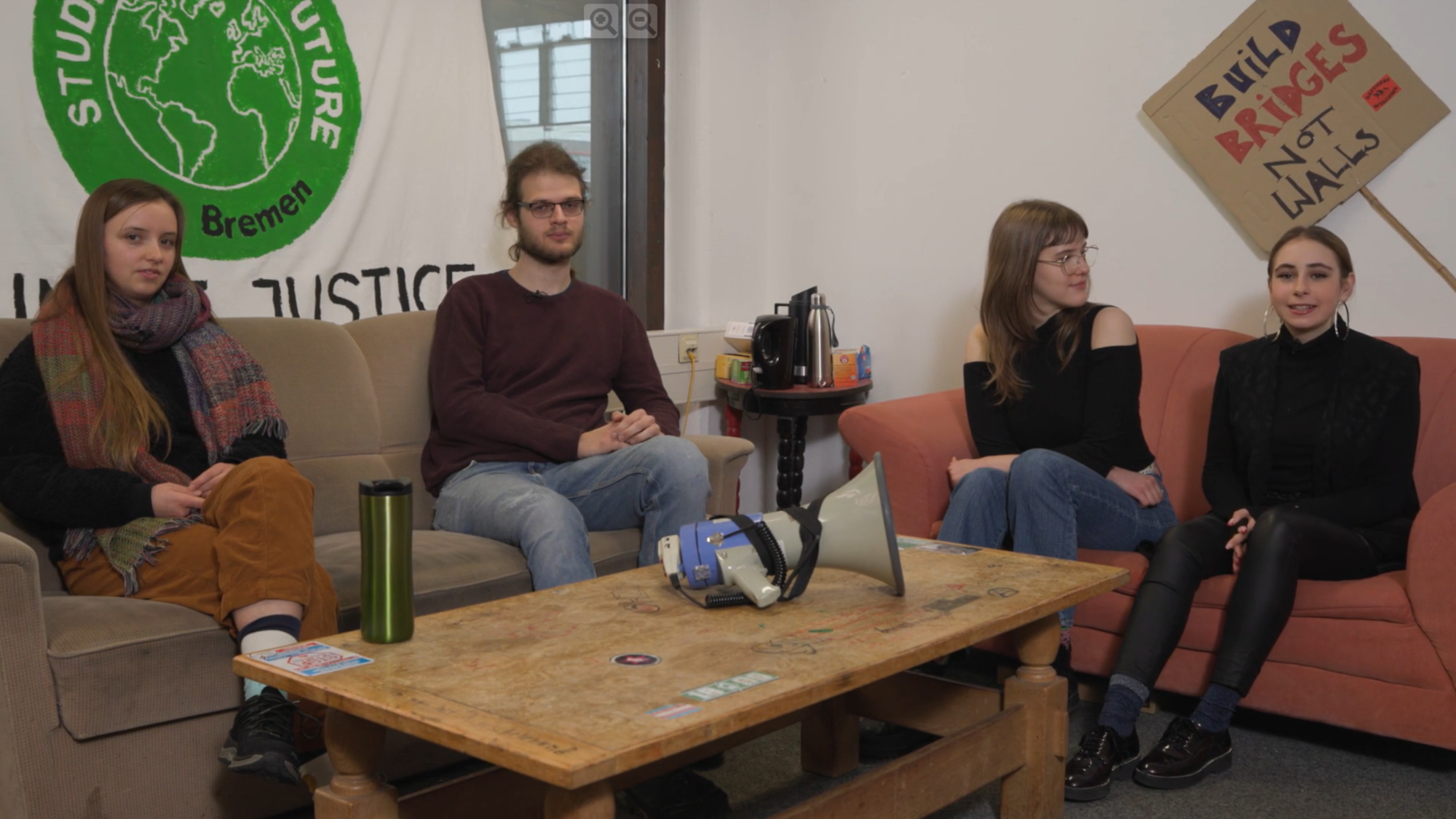
© Students for Future Universität Bremen/Virtuelle Akademie Nachhaltigkeit
Multiple Perspectives on Climate Change
The Virtual Academy for Sustainability’s new course
From geosciences to economics to health sciences, the effects of climate change play a role in almost all academic fields. If you want to know more about this, take a look at the Virtual Academy for Sustainability’s new seminar “Der menschengemachte Klimawandel: Ursachen, Effekte und Lösungswege” (Human-Driven Climate Change: Causes, Effects, and Solutions). “Students for Future” moderate the course.
Videos, texts, infographics, quizzes, and much more await you in the online course, which is available free of charge on the VAN website. The best part is that you can learn at your own pace – VAN courses have no set course times. “All students can participate in our courses, regardless of their degree program,” explains Katharina Lingenau, coordinator of digital teaching and learning at VAN. You can also earn General Studies credit points for the courses if you pass an online exam at the university’s testing center at the end of the semester. The courses were created by VAN together with the Centre for Multimedia in Teaching (ZMML).
Students for Future Provide Course Commentary
What exactly is the seminar on climate change about? “A similar course was offered before, titled ‘Climate Protection and Climate Adaptation,’” explains Katharina Lingenau. The seminar was one of the most popular VAN courses, but had not been updated since 2013. Therefore, it was time for a new edition. In 14 chapters, researchers from different fields present their own views on climate change. Fiona and three other students from Students for Future tie these perspectives together by moderating the course, clarifying questions with the lecturers at the end of each chapter, and providing their own chapter on climate activism.
Varying Viewpoints from Biodiversity to Medicine
“It was particularly important to us to present the topic from many different perspectives,” explains Dr. Denis Pijetlovic, project coordinator of VAN. Numerous researchers from the University of Bremen are involved in the event, as well as researchers from other universities. Mojib Latif, professor at the Helmholtz Centre for Ocean Research in Kiel, explains the difference between weather and climate and the impact of the greenhouse effect on climate. Dr. Torben Struve, scientist at the Institute for Chemistry and Biology of the Marine Environment (ICBM) at the University of Oldenburg, researches the ways that climate change affects the oceans. He explains the relationship between rising temperatures and rising sea levels and the influence of various greenhouse gases on oceans and ice sheets. The effects of climate change are not limited to nature, but affect the healthcare system as well. Guido Schiemann, lecturer at the University of Bremen and specialist in general medicine, explains how. Among other things, he describes the link between the increase in allergies and climate change.
Combating Frustration Together
It can be frustrating to see how widespread and profound the effects of climate change are. “Which is why when we designed the course, it was very important to us to include possible solutions,” says Katharina Lingenau. For example, the psychotherapist Katharina Simons teaches about the ecological handprint in her chapter on climate psychology. Unlike the ecological footprint, which describes the harmful effects of our actions, the handprint indicates how we can change the world for the better with climate-friendly actions.
The final chapter on climate activism addresses the topic of personal impact in particular. “Students for Future” help you to find your own way to get involved by asking the following questions: What is important to you? What are your values? What are things you can commit to doing and things you cannot? How are you doing and what are you good at? “We have a lot of questions, and we want to do something about the climate crisis. Often enough, we are dealing with frustration about the injustice that we see all over the world. Then suddenly, excellent projects emerge – projects that we never thought could become reality. Another world is possible,” Hannah Knahl from Students for Future tells the course participants.
Further Information
Virtual Academy for Sustainability
Course “Anthropogenic climate change: causes, effects and solutions”